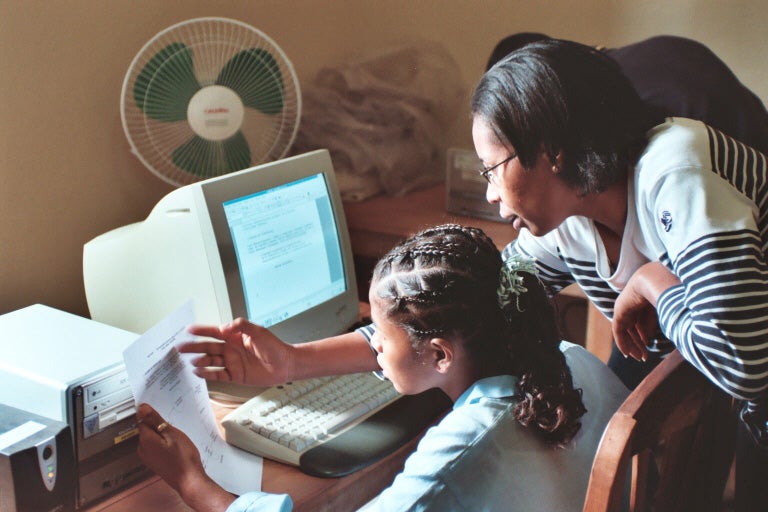Megabytes in Madagascar
UK schools asked to donate their used computers

Your support helps us to tell the story
From reproductive rights to climate change to Big Tech, The Independent is on the ground when the story is developing. Whether it's investigating the financials of Elon Musk's pro-Trump PAC or producing our latest documentary, 'The A Word', which shines a light on the American women fighting for reproductive rights, we know how important it is to parse out the facts from the messaging.
At such a critical moment in US history, we need reporters on the ground. Your donation allows us to keep sending journalists to speak to both sides of the story.
The Independent is trusted by Americans across the entire political spectrum. And unlike many other quality news outlets, we choose not to lock Americans out of our reporting and analysis with paywalls. We believe quality journalism should be available to everyone, paid for by those who can afford it.
Your support makes all the difference.Christmas is approaching fast, with all the associated tinsel, trimmings and turkey sandwiches. One of the best things about this time of year is the box office cinema releases, and 2008 sees the return of the city-hardened menagerie of New York’s Central Park Zoo – that we first met on screen in 2005 – in the form of Madagascar: Escape 2 Africa.
While this is the closest most of us will come to the island nation off the south-east coast of Africa, someone who is much more familiar with the country is Nigerian-born travel writer and broadcaster Christina Dodwell. She spent time there while writing her travel guide, Madagascar Travels, and fell in love with the country.
Fifteen years ago Dodwell started her own charity, the Dodwell Trust, to bring connections and education to the people of Madagascar. “It is as magical and enchanting as the films portray and has incredible biodiversity, but it is also very poor,” she says. “It’s bypassed by the main trade routes and is well off the popular tourist trails. This is a place where firemen fight fires in their bare feet because they can’t afford to buy shoes.”
This Christmas, to coincide with the movie release, Dodwell and the charity IT Schools Africa are launching a campaign to encourage schools to donate old computers to help provide facilities to Madagascan children. “Used computers have almost no value in the UK, but in Madagascar they can really transform lives,” says Dodwell. “Ordinarily, school leavers can expect to earn no more than 70p per day working on the land, but with computer skills they can access far better job opportunities.”
IT Schools Africa sent the first container of 480 refurbished and recycled computers this week, but many more computers will be needed to complete the project; the aim is to recycle 10,000 in total. Over the course of the next seven years, IT Schools Africa, in partnership with the Madagascar Ministries of Education and Decentralisation, plans to set up 500 regional IT resource centres across the country, each containing 20 computers and a library of information. They will be used by schools, community organisations and NGOs. “The number of people who will use each computer is massive, and the benefits are huge. The only thing we need is computers for recycling,” says Dodwell.
Four years ago, Dodwell sent 40 computers to Madagascar and was overwhelmed by the response she received. “They tied bows and ribbons on them and put them on national TV – they were so touched. This is why I continue to work with the people from Madagascar, because their response is always far greater and sweeter than you had ever imagined. The difference you make by doing what seems like such a small thing to us is so much greater than one could ever understand.”
IT Schools Africa is seeking donations of desktop computers or laptops of Pentium 3 and above, and the computers can be dropped off at IT Schools Africa’s warehouse in Leckhampton, Gloucestershire. For more information visit www.itschoolsafrica.org or, to make a donation, contact Tim Barnes or Catherine Richardson on 01242 228 800 or info@itschoolsafrica.org
Join our commenting forum
Join thought-provoking conversations, follow other Independent readers and see their replies
Comments